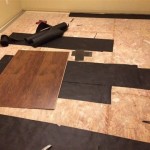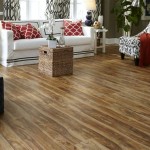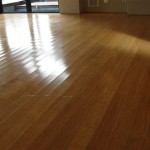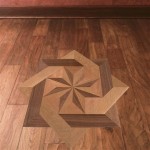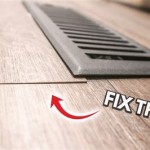Is Vinyl Plank Flooring Good for Basements?
Vinyl plank flooring has become increasingly popular for residential and commercial spaces, including basements. Its durability, affordability, and ease of installation make it an attractive option for homeowners looking to enhance their basement's functionality and aesthetics.
Advantages of Vinyl Plank Flooring for Basements
1. Waterproof and Moisture-Resistant: Vinyl plank flooring is renowned for its exceptional water resistance. Unlike traditional hardwood or laminate flooring, it will not warp, buckle, or rot when exposed to moisture. This makes it an ideal choice for basements, which are prone to humidity and potential flooding.
2. Durable and Long-Lasting: Vinyl plank flooring is constructed from durable materials that can withstand heavy foot traffic, impacts, and scratches. Its wear layer protects the design layer from fading and abrasion, ensuring its longevity even in high-traffic areas.
3. Comfort and Warmth: Compared to cold ceramic or concrete floors, vinyl plank flooring provides a warmer and more comfortable surface to walk on. Its insulating properties help retain heat, making it a cozy option for basement spaces.
4. Easy to Install: Vinyl plank flooring is designed for DIY installation, making it a cost-effective alternative to hiring professionals. Its click-lock or glue-down installation methods are straightforward, allowing homeowners to complete the project quickly and efficiently.
Considerations for Installing Vinyl Plank Flooring in Basements
1. Proper Subfloor Preparation: The subfloor must be smooth, level, and dry before installing vinyl plank flooring. Uneven subfloors can cause uneven installation, gaps, or buckling.
2. Acclimation: Vinyl plank flooring should be acclimated to the basement's temperature and humidity for several days before installation. This allows the material to adjust to its new environment, reducing the risk of expansion or contraction.
3. Vapor Barrier: A vapor barrier between the subfloor and the vinyl plank flooring is essential to prevent moisture from damaging the flooring. It can be installed using a plastic sheet or a self-adhering vapor barrier membrane.
Conclusion
Vinyl plank flooring is a suitable option for basements due to its durability, moisture resistance, comfort, and ease of installation. Its waterproof nature and long lifespan make it an investment that can enhance the functionality and aesthetics of any basement space. By considering the proper installation techniques and precautions, homeowners can enjoy the benefits of vinyl plank flooring in their basements for many years to come.

What Is The Best Flooring For Basements Get Pros And Cons

Lvt Vs Carpet What S Better For A Basement

Vinyl Plank Flooring On Concrete Basement Pros Cons

Vinyl Plank Flooring Installation Basement Remodel Before And After

Lvt Vs Carpet What S Better For A Basement

Basement Flooring Guide

New Basement Flooring Shades Of Blue Interiors

What Are The Best Flooring For Basement In Homes

The Best Flooring For Basement Renovations Guide Reallyfloors America S Est Hardwood

Best Basement Flooring Options Refloor
See Also
